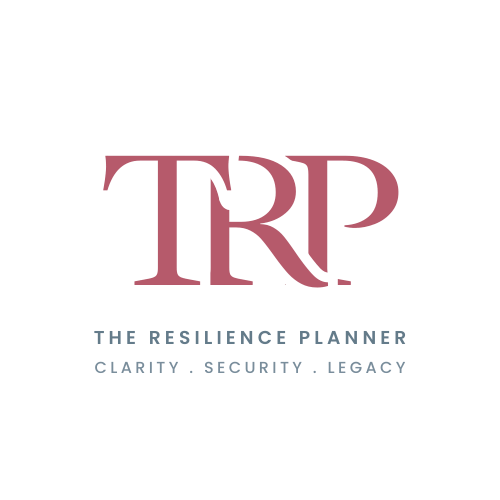Building Financial Well-Being at Work – From Financial Stress to Early Retirement
In today’s fast-paced world, financial well-being is more than just a personal goal—it’s a critical factor that influences our professional lives and long-term aspirations. Many of us dream of retiring early, but the path to achieving that dream is often clouded by financial stress, especially in the workplace. Some of us are plagued by work stress, and yet we struggle to keep up with our financial commitments.
How can we then bridge the gap between financial well-being, workplace stress, and the possibility of earlier voluntary retirement? Here’s what I think.
1. The Connection Between Financial Well-Being and Workplace Performance
Financial well-being isn’t just about having enough money; it’s about feeling secure and in control of your financial future. When we are financially stressed, it can lead to decreased productivity, absenteeism, and even burnout. Studies show that financial stress is one of the top distractions in the workplace, affecting mental health and job satisfaction. It is also said that when we suffer from illnesses, we are also “dis-eased”.
In a 2023 survey by PwC, the survey found that 60% of employees are stressed about their finances, and 72% of those employees say their financial stress impacts their work performance. (Source: https://www.pwc.com/us/en/services/consulting/business-transformation/library/employee-financial-wellness-survey.html)
This stress can manifest in various ways, from difficulty concentrating to increased sick days. When employees are unable to perform at work, the likelihood of them getting good appraisals and promotion is also reduced as well. This can further worsen their associated financial well-being. When stressed and sick, employees are unlikely to be engaged and motivated.
2. Financial Stress: The Silent Barrier to Early Retirement
For many, the idea of retiring early feels out of reach because of financial uncertainty. High levels of debt, inadequate savings, and poor financial planning can create a cycle of stress that makes early retirement seem like a distant dream. Workplace financial stress exacerbates this issue, as employees struggle to balance immediate financial needs with long-term goals.
In a recent article published by Business Times, it is estimated that “a 65-year-old retiree would need a nest egg of at least S$550,000 to meet expenses based on “conservative needs” for 20 years. Those with more “aspirational wants”, such as travel, hobbies and charitable giving, will need to accumulate up to S$1.3 million.” (Source: https://www.businesstimes.com.sg/companies-markets/retirees-should-build-nest-egg-least-s550000-conservative-needs-gen-zs-millennials-could-fall-behind)
The sheer amount of savings required for retirement can feel insurmountable. However, the key to breaking this cycle lies in proactive and prudent financial management.
3. How Employers Can Help: Building a Culture of Financial Wellness
Employers can also play a pivotal role in helping employees achieve financial well-being. By offering financial education workshops, retirement planning resources, and access to good financial advisors, organisations can empower their workforce to make informed decisions.
For instance, companies like Google and Microsoft have implemented comprehensive financial wellness programs that include workshops on budgeting, investing, and retirement planning. These programs not only reduce financial stress but also improve employee loyalty and retention. When employees feel financially secure, they are more likely to stay focused, perform better, and plan confidently for the future—including the possibility of earlier retirement. (Source: https://www.monster.com/career-advice/article/companies-good-wellness-programs)
4. The Path to Earlier Voluntary Retirement
Achieving financial well-being isn’t just about reducing stress—it’s about creating a roadmap to financial independence. By addressing workplace financial stress and equipping employees with the tools they need to manage their finances, employers can help pave the way for earlier voluntary retirement. Imagine a future where employees can retire on their own terms, free from the burden of financial uncertainty. It is never too late to get started.
Here are a few actionable steps:
- Assess Your Financial Situation: Take stock of your current financial health. How much do you have saved? What are your debts? What are your retirement goals?
- Create a Budget: A well-planned budget can help you allocate funds towards savings and investments, bringing you closer to your retirement goals.
- Take Advantage of Employer Programs: If your employer offers financial wellness programs, make sure to participate. These resources can provide valuable insights and guidance.
- Consult a Financial Advisor: A professional can help you create a personalised retirement plan and identify strategies to achieve your goals.
Are you ready to take control of your financial well-being and explore the possibility of earlier retirement? DM me for a Clarity Chat Session where we’ll dive deeper into these topics and discuss how you can take actionable steps to reduce financial stress, improve workplace satisfaction, and plan for a secure future.
Alternatively, you can take this self-assessment quiz to see where you stand in terms of financial stress level: https://cammietan.com/wp-content/uploads/2025/02/SAQ-Financial-Stress.pdf
Final Thoughts
Financial well-being is the foundation of a fulfilling professional life and a secure retirement. By addressing financial stress in the workplace and empowering yourselves with the right tools, we can create a future where early retirement is not just a dream, but an achievable goal.
Disclaimer:
The views and opinions expressed in this article are those of the author, and do not reflect the official position of any agency, organization, employer, or company. This content is for general knowledge only and does not constitute financial advice. Please consult a licensed financial advisor for personalised recommendations.
About the author:
Cammie currently holds a financial advisory license for distribution of insurance and collective investments scheme products. She also has an Estate Succession Practitioner certification. Trained as an Architect and being a brain tumour survivor, she identifies herself as The Resilience Planner in Personal Finance. Her approach to financial advisory is consultative. She encourages her clients to be participative and ask her questions. She believes that because Personal Finance is personal, she works with her clients to cater for tailored solutions to suit each individual’s needs and goals in life.







